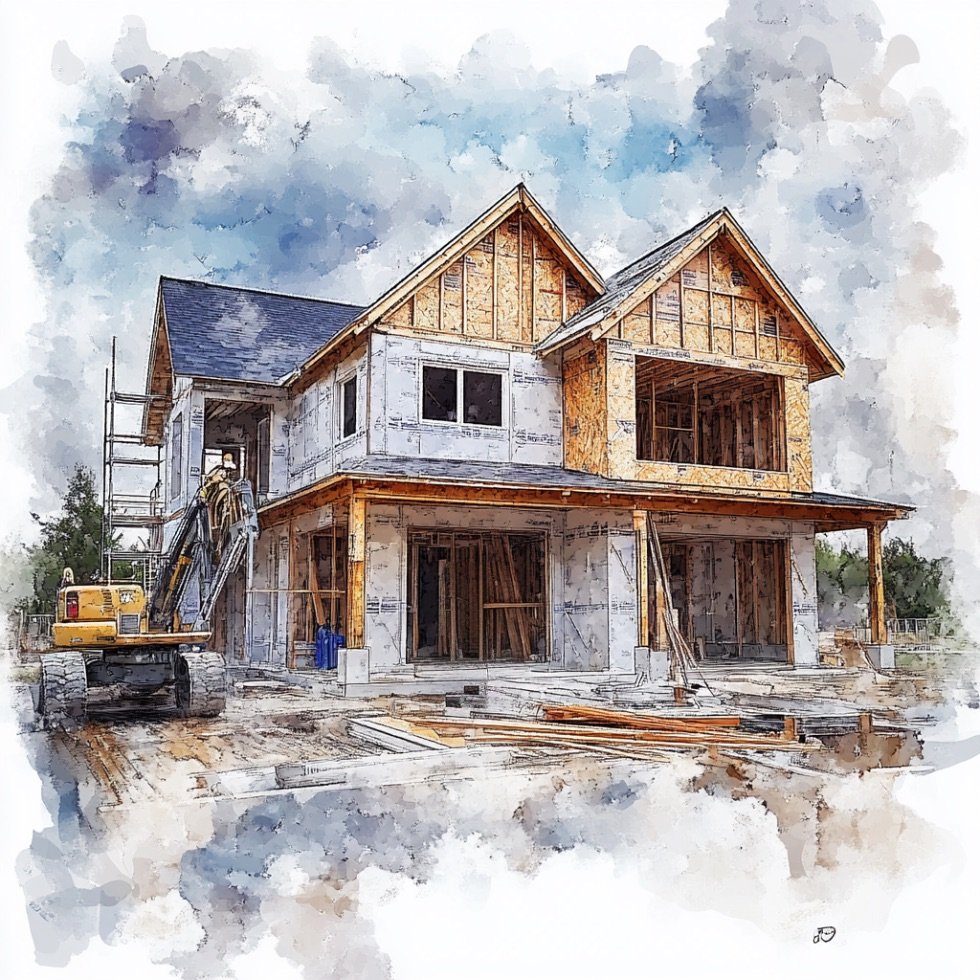How to Renovate
My mom called me yesterday, complaining about a home renovation project they are knee-deep in. Her frustration was clear—nothing was turning out quite the way she imagined.
A few days earlier, a new friend I met here in Sydney was venting about the same thing—delays, surprises, and the creeping sense of dread that their home wouldn’t be finished any time soon.
And last week, I listened to a voice note from a friend in Lisbon who was describing their own home renovation nightmare.
No matter where I turn, whether it’s in Sydney, Lisbon, or back home in Toronto, everyone has the same story. No matter the country, currency, or culture, home renovations seem to be a universal source of frustration, stress and anxiety. I’ve never heard someone say their renovation went perfectly—on time, under budget, stress-free, with everything turning out exactly as expected.
It got me thinking, why the consistent surprise about being surprised? It is predictable how unpredictable renovations will be, but yet everyone acts like it is the biggest surprise ever.
I think it comes down to control.
It’s not just about the budget overruns—many parts of our lives go over budget, and we don’t react as strongly. We might overspend on vacations, go a bit too far with holiday shopping, or indulge in an unexpected splurge on a night out. Yet these instances don’t hit us with the same emotional weight.
It’s also not purely about the delays. We face delays all the time—whether it’s a flight running late, a traffic jam, or waiting longer than expected for a delivery. We shrug those off more easily. So why is it that when it comes to renovations, our emotions spike?
A home is personal. It’s a place of safety, a reflection of who we are, and where we retreat to recharge. And when something disrupts that space—something as visible as a paint color not being quite right or a bathroom tile slightly off-center—it feels like we’ve lost control over something deeply intimate.
Objectively, the shade of white on the wall being a touch lighter or darker, or a wire being exposed where it shouldn’t be, doesn’t actually matter. In the grand scheme of life—where we’re seeking connection, doing meaningful work, loving those around us, and finding inspiration in the world—these small details of how our homes look or how long they take to complete are so clearly unimportant.
Yet, we make them matter. A lot.
We get emotionally attached to them because they represent something more significant: the feeling that we’re losing control over something that feels sacred to us.
There’s an easy, surface-level response to this problem: “plan better.” Allocate more time and money, expect the unexpected, and manage expectations accordingly. But that advice misses the mark because the issue isn’t about planning; it’s about emotions. “Plan better” doesn’t address the deeper emotional need we have for control, especially over something as personal as our homes. It’s a primal instinct to seek safety and security in the spaces we inhabit.
But here’s the thing: control is an illusion. It’s something we convince ourselves we have, and we hold onto it because it makes us feel safe. We like to believe that if we plan well enough, work hard enough, and organize everything perfectly, we can control the outcome. But life doesn’t work that way, and renovations are just one example of this truth playing out.
The solution isn’t to tighten our grip. Instead, it is to look for security somewhere else. Within ourselves.
When I take a step back, pause, and breathe, I realize that my real sense of safety in life doesn’t come from controlling my environment or my circumstances. It comes from trusting myself. It comes from knowing that no matter what happens—whether it’s a delayed renovation, a relationship challenge, or a career setback—I’ll be okay. I often need to remind myself of this when I get caught up in a moment or a situation.
This sense of inner stability is something no external situation can mess with. When we look for safety outside of ourselves, in the perfect shade of white paint or the exact alignment of bathroom tiles, we set ourselves up for disappointment. But when we cultivate safety within—through self-trust, self-compassion, and resilience—we can weather any storm, whether it’s a home renovation gone wrong or something far more significant.
The antidote to the feeling of a loss of control is finding peace within ourselves, knowing that no matter how chaotic things get on the outside, I’ll be just fine on the inside.
This perhaps is the real renovation worth undertaking.
And that is how I learned how to renovate.




